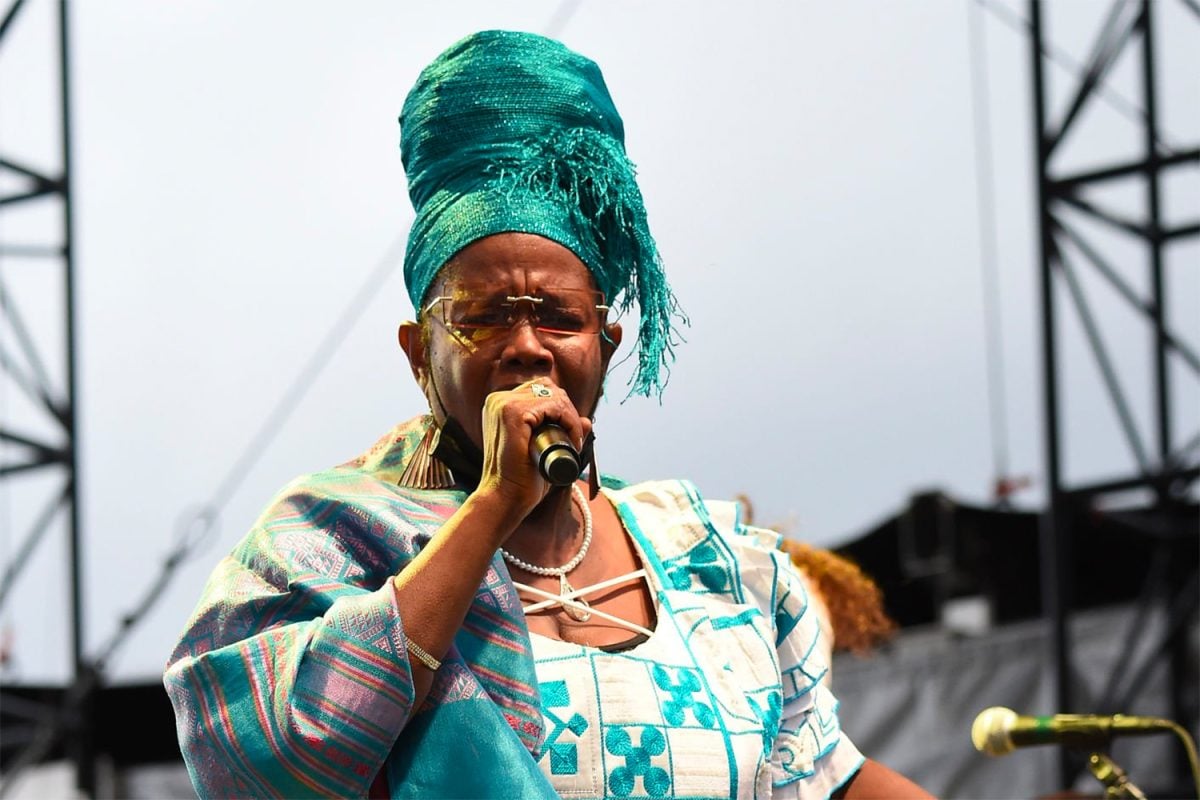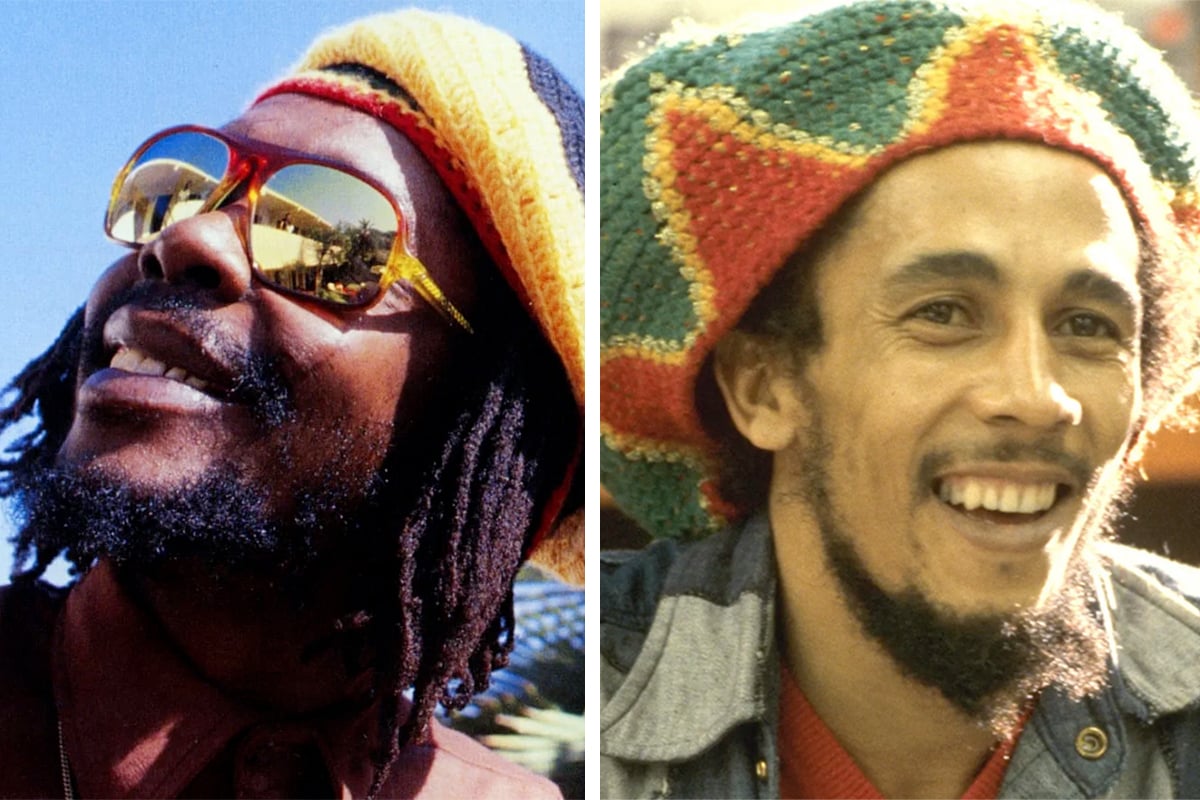Sister Carol Urges Jamaican Artists To Put Songs On Vinyl

Amid a resurgence in demand for LP records, as reported by Billboard’s sales tracker Luminate Data and the Recording Industry Association of America (RIAA), veteran Dancehall deejay Sister Carol is urging her Jamaican compatriots to return to putting their songs on vinyl.
“Vinyl is in demand,” Sister Carol told DancehallMag in a recent interview. “It has a warmness to it that you don’t hear on the CD. Or you hear on yuh jump drive… there is nothing like a vinyl. Whenever you put the needle on, and you hear that sound you feel like you are a part of it, because most of the music that was made then, you know, were composed by five, six different people: the drum, the guitar,” she said.
“So the kind of people energy that was circulating come out in the song. When a man siddung an him one play di riddim, pon a computer, it naw no soul. It almost comin like suppm like a condom. It naw guh have di live feel like when it is being played by musician playing live instruments. And when you play the vinyl now, that’s the other part of it that gives you a energy weh indescribable,” she continued.
She added: “And that’s why people are craving for it so much now – in America. Last year I was told that vinyl sales have surpassed way what they were expecting because it’s like it come right back round to vinyl. CDs are literally out. People want vinyl; the real ting, the analogue ting enuh.”
The Dread Natty Congo artist said that dubplates on vinyl are, once again, a hot bread item for owners of sound systems across the world.
“Ninety-nine percent of the artistes right now are being fed by a ting weh yuh call dub plate. They put it on vinyl and play it in the dance; every sound, everywhere yuh can guh. Sometime when I a do dub plate, I a do dub plate fi some countries I never visited those countries before. But the people dem want a dub plate, – the vinyl dub plate and when they play it that is where the heights a di dance guh the highest point,” she explained.
The Kingston native said artists should, without delay, move to get their past and upcoming recordings on vinyl, as she has already been doing.
“Suh right, right now is the right time fi put out yuh music on vinyl. Right now some of my songs weh come out 30, 40 years ago, mi put them on vinyl, because people will pay money just to have it, the real thing. That’s where we are now,” she said.
“Is vinyl a carry di swing. Young people will always be coming, but they will always have to resort to what they came and see. They come and see vinyl and is vinyl a run di place right now. So we recommend if they want to be seen or heard, put out di ting on vinyl, an a dat wi a do to.”
On Tuesday, Luminate Data reported to DancehallMag that the overall physical marketplace (LP/CD/Cassette) was up 17% through week 18, 2023, over the same period last year.
“The continued vinyl revival receives the lion’s share of coverage in the physical marketplace (and for good reason as it is up 27% over last year),” the company added.
In its End of Year Report released in March, the Recording Industry Association of America (RIAA) reported that vinyl albums outsold CDs in 2022 for the first time since 1987, with 41 million vinyl albums sold, compared to 33 million CDs. “Revenues from vinyl records grew 17% to $1.2 billion – the sixteenth consecutive year of growth – and accounted for 71% of physical format revenues…,” the agency noted, adding that at the same time, CD revenue fell 18% to $483 million.
In recent times, Bob Marley, Peter Tosh, and Jimmy Cliff all had classic albums that entered the Billboard Reggae Chart for the first time, courtesy of vinyl reissues.

In November last year, Bob’s Rastaman Vibration stormed onto the Billboard Reggae Albums chart for the first time in the 46 years since its release, via a special remastered and repackaged version of the 1976 album in Ultra High Quality Record (UHQR) vinyl format, as a collector’s item.
Priced at US$125, the album was limited to 3,500 units and sold out almost instantly, with 2,000 units going to Reggae fans in the United States, placing it at No. 4 on the Billboard Reggae Albums chart, dated December 3, 2022.
In April last year, a total of 6,700 copies of Tosh’s Complete Captured Live album were made available on Record Store Day, on vinyl for the first time since 2002. That album debuted on the Billboard Reggae Albums chart at No. 2, following sales of 3,500 of the 6,700 vinyl copies in the United States.
As for Jimmy, 1,300 copies of the 2,500 re-issued copies of Follow My Mind were sold in the US, resulting in the album charting on Billboard Reggae Albums chart for the first time at No. 10. The Somerton St James’ native’s last entry on the Billboard chart was his Best Of Jimmy Cliff album, which peaked at No. 7 in November 2017.
In May 2023, Tosh’s Live and Dangerous: Boston 1976 album reached No. 4 on the Billboard Reggae Albums chart, beating its previous peak of No. 12 on the listing back in September 2001 following a special release on vinyl for the first time, with 3,550 copies made available on April 22, 2023.
The discussion about artists returning to releasing music on vinyl has been the subject of much discourse in recent times.
In March 2016, renowned Renaissance’s selector/producer Delano, had argued that Jamaicans who are hardcore fans of Reggae and authentic Dancehall music, are not very interested in digital music, but prefer vinyl, due to Jamaican music requiring what he described as “heavy sounds”, which is a “feature which is not best transmitted digitally”.
Delano had said, among other things, that while he was not being dismissive or implying that digital music should be jettisoned, he was encouraging Jamaican artists to make their records available in vinyl format “if they want to see profit from their work”.
“When you play a vinyl record, you get the sound as close to the wave format as possible and it sounds better. And for old-school DJs like me, playing a vinyl feels better,” he had said in a Gleaner interview.
Delano had also said that the rise in demand for vinyl records could also be attributed to the resurgence of the sound system culture, Jamaica’s dub music and EDM.
US-based record label, Delicious Vinyl’s Leslie Cooney, had also batted for vinyl. He had told The Gleaner that if contemporary Jamaican artists create good music and direct some of their focus to vinyl distribution, they would “see improved sales” and could “outsell digital downloads” if they put out a good vinyl. If not, she said, an artiste with popular record, was not on vinyl, could miss out on “a strong demographic of people”.
In July last year, the Recording Academy revealed via the GRAMMY website that sales of records have been on a steady incline ever since 2006. The organisation said that in 2021 vinyl LPs sold nearly 42 million units, which, while it “may seem insignificant when compared to a high of over 500 million units sold circa 1980”, represents a significant portion of today’s music retail sales.
“When sales of compact discs overtook records in the late 1980s, it looked as if the era of the vinyl record was coming to an end. By the early 1990s, vinyl production had all but ceased. Plants either closed or made the transition to CD production. But as the rise in digital formats – specifically downloads and streaming – began to take over from CDs, vinyl returned. Listeners who found something missing in the digital age once again turned to the tangible format of vinyl records,” the GRAMMYS noted.
